|
Today's prompt was aimed at novelists as well as short story writers: to craft a turning point in the story. Very interesting challenge. Imagine, a labyrinth in North Platte! It was just a path of crushed stone, lined with edging bricks, the kind used in landscaping. In the center were three small benches, just the right size for one person. On each one, a single word was incised: “Faith”, “Hope”, and “Love”. Anna stepped onto the path. “Oh”, she thought, “shouldn’t I have an intention first”. She hesitated, but then the word “journey” popped into her head. Wasn’t that her intention all along? To journey back to a place and time that no longer existed. And when you do that, is it even possible to know where you will end up? She paced the labyrinth, sometimes pausing to gaze up at the impossibly blue, clear sky, sometimes distracted by the man mowing his lawn in a nearby yard. She looked at the three benches in the center, as she moved closer and farther away from them as the path twisted around in its intricate pattern. She imagined her life as a jigsaw puzzle with an unknown picture. She’d found the corners, assembled the edge, and pieced together a few areas that seemed clearly defined. Now she was carefully connecting the remaining section, the jumble of colors and shapes that almost seemed familiar, but not quite. And suddenly, there she was at the center of the labyrinth, and she knew, deep in her being, that a piece was missing from the puzzle. She sank down on the bench inscribed “Love” and closed her eyes, with a sigh. Peggy turned her head. Was that the wind picking up, or was it … a sigh? She looked toward the sound and, with a shock, realized that Mary’s eyes were meeting hers, open and focusing, for the first time in fifty-nine years. “Mary?” Mary’s head tilted a bit on the pillow, and her expression changed to puzzlement. “No one has called me that since I was a little girl.” Then she was silent for a moment, wet her lips and asked, “Who are you?” “I’m Peggy, dear. I’ve been waiting all this time for you.” “Where did you find me? Did I faint at the labyrinth?” Peggy felt confused and a little panicky. “Mary, you have been here nearly the whole time since the accident.” “Accident?” Peggy started to explain, but stopped herself. Perhaps it would be too much of a shock to explain right now. Seeing Mary lick her lips again, Peggy stood up quickly. “I am going to get you some water. Just rest; I’ll be right back”. Her hands shook as she got a glass from the cupboard and filled it at the kitchen tap. “I should call John,” she thought, but then realized he would be busy with the brown bag book talk for another hour. “No, I’ll just stay here and make sure she’s ok.” At the library, John was getting nervous. The room was arranged, the coffee was made, and the projector was set up for the speaker, but Anna Whitmore was nowhere to be seen. A few early birds were already settling in, opening their sandwiches and take-out salads. He pulled out his cell phone and dialed Anna’s number. “I’m sorry,” a robotic voice answered, “ You have reached a nonworking number. Please check your listing and try again.” Maybe I should call the police, John worried. Returning to the meeting room, he glanced at the clock. Five minutes late. Maybe she was lost. He walked quickly back into the room. “Professor Whitmore is running late,” he announced nervously. “Please help yourself to coffee or tea while we wait.” “Here’s your water, Mary.” Peggy tried to say it brightly, but her nonchalance was definitely forced. She watched as Mary reached for the glass, and took a long drink. Then, their eyes met again, for what seemed like a long time. “Peggy, it’s been so long since I was Mary.” “I know, dear. But you’re back now.” “Call me Anna. I go by my middle name now. Anna Whitmore.”
0 Comments
Having freed myself from the tyranny of StoryADay’s prompts, I am moving on to my real reason for taking up this challenge. I wanted to turn my blog posts from my trip to Nebraska last fall into a personal narrative. I realized that there were many stories running through my nearly-daily entries, from personal reminiscences and to discoveries about my political and spiritual identities. Bear with me; this is a draft of a revision of a series of drafts.
Moving away At first, it just seemed like a big adventure. "We're moving east; Daddy has a new job in New York." New York! To a little girl on the high plains of At first, it just seemed like a big adventure. "We're moving east; Daddy has a new job in New York." New York! To a little girl on the high plains of Nebraska, New York was as magical as Oz. The Empire State Building! The Statue of Liberty! A Christmas tree as tall as the Pawnee Hotel! I was the envy of my third grade class.
As our old Chevy pulled away from the stucco bungalow on Willow Street, I waved excitedly at my best friend Jane, who smiled wanly at me from her own front yard across the street. "We're off!" Mommy said, a little too loudly. In the back seat, Bobby and I leaned against the curved rear window of the Chevy for a last look at North Platte. A year later, in my bedroom in our new home, I sobbed at the memory of the Willow Street house, with its lilacs and rhubarb plants. I thought of Jane and cried even harder, berating myself bitterly. "I smiled! I smiled!" How could I have been so stupid, so blind, so ignorant of what "moving away" would mean? Nebraska was so far away, and New Jersey was so different. Bobby was sent home from school for wearing jeans. My classmates teased me for my clothes, my accent -- everything, it seemed. I learned quickly never to mention Nebraska or North Platte, which would set their eyes rolling as they mimicked her flat nasal tones. The family had arrived just before Christmas, and so I'd been left out of the class gift exchange. Even worse, I was behind in arithmetic. We'd been just about to start column addition in North Platte; in New Jersey they were already passed it. My teacher, Miss Saneska, had been teaching the children to play the recorder and speak French, but hadn't counted on having a new student arrive midyear. So three times a week, I was sent to the library to read while her classmates sang "Sur le Pont d'Avignon" or played their instruments. Life in New Jersey was miserable. By three months after the move, I had added a line to my bedtime prayer. "Now I lay me down to sleep, I pray the Lord my soul to keep. If I should die before I wake I pray the Lord my soul to take. And please let me wake up in North Platte." But it wasn't a dream, and I never went back to North Platte. I moved again and again, from New Jersey to Connecticut to upstate New York to Massachusetts to Pennsylvania to Rhode Island and finally to Maryland. I learned to relish being "the new girl", and having the chance to reinvent myself with each new home. I took on the role of welcomer, helping other newcomers to settle in. My parents had a mixed marriage; Mom was a Republican, Dad was a Democrat. Now mind you, in the 1950s, that didn't mean much. The first President I remember was Eisenhower, and he would be considered a RINO by today's GOP base. My mom's family was decidedly Republican, as were many German Lutherans in the Midwest. My mom had little use for Catholics and Jews, but of course that was expressed in the nicest midwestern way ("not our kind", and a tendency to point out which Hollywood stars were Jewish, even when the information was a complete non sequitur). When she moved to Maryland in the 1980s, she had several Black friends; I know, because she never failed to identify them as "my Black friend so-and-so." My dad, raised below the Mason-Dixon line in southern New Jersey, had grown up in a small town that sanctioned interracial friendships but not interracial dating or marriage. He idolized Satchel Paige, Louis Armstrong, and Lionel Hampton, but he also laughed at Amos and Andy and told racist jokes. I have seen a picture of him in blackface for a minstrel show in Port Norris. But his dad trained young Black men as typesetters and printers and sold his print shop to one of them when he retired, to the disapproval of his wife and many of his neighbors. So, like many white Americans, my personal history with race and racism is complicated. So is the racial history of North Platte. I am a huge fan of Ta-Nehisi Coates, and his take on the social construction of race. In Between the World and Me, he uses the phrase "people who call themselves white", which underscores the historical fact that many groups who are now considered white were once not considered part of that privileged and protected group. (And, I might point out, the legal and social history of those privileges and protections, from personhood to public accommodation, to voting rights.) This is how complicated it was in 1920. The local census enumerator, Mary Durbin, had a bit of trouble assigning racial categories to two particular groups: Mexicans and Greeks. Compare these entries: Over the forty or so pages of Mrs. Durban's enumeration, the Greeks became White and the Mexicans became Other. That is how slippery a thing this thing called "race" is. And what about me, in 2016? I call myself White; my ancestors came from Germany, England, Ireland, Scotland, and -- surprisingly -- Sweden and Italy. I, too laughed at Amos and Andy and listened to Louis Armstrong. I danced to the Temptations, and read Uncle Remus stories. I sang "My Old Kentucky Home" and "Old Black Joe" in school choir. I also voted for Barack Obama (twice) and follow Charles Blow, Joy Reid, and Van Jones on Facebook and Twitter. I think reparations need to be part of any discussion about racial reconciliation. We need to be as familiar with our nation's white supremacist past as with the civil rights movements that have struggled against it. We need to know white supremacy when we see it, whether in everyday interactions or national news. Would my views of race and racism would be the same if I had lived my whole life in North Platte? I would like to believe the answer would be "yes", but in my heart of hearts I know that is unlikely. The harder question to answer is how much of the racism I learned long ago still lingers in me.
My wanderings here in North Platte have taken me back to the microfilm machine at the library, and the 1929 North Platte Evening Telegraph. Long ago, I had stumbled across a news article in the New York Times about a "race riot" in North Platte. I was researching something else, and this was when photocopy machines were uncommon, even at the Library of Congress, so I didn't save the story, or even take notes. But I remembered. And as the Internet expanded, I would try to find more information from time to time. Here is what you'll find today about the incident. On Saturday morning July 13, 1929, in North Platte, a white police officer was shot and killed by a Negro he was trying to arrest. The slain officer was Edward Green, a well-known former acting chief of police, and one-time professional baseball player. The black man was Louis (Slim) Seeman, operator of the Humming Bird Inn, a chicken-dinner lunchroom located in his home on West 7th Street. Shortly afterward Seeman, too, was dead, either by his own hand or as result of police gunfire. Following the shooting deaths, a small group of whites threatened the city's black citizens, most of whom had fled by late afternoon. If you read the whole article, you see that it's a very complicated story. The news reports were eventually found to have exaggerated, adding lurid detail, increasing the Black population of North Platte from around 30 to 200, and describing nonexistent babies nearly drowning as they escaped in a rain storm that never happened. But there are also bits of truth. There was a small group of men who circulated among the Black community and warned the residents to get out of town by 3 pm. There was a Ku Klux Klan presence in the town at the time. The men accused of chasing the Black people away were tried, and all were acquitted. The entire incident is still blamed on the Black people; an acquaintance told me last week he had heard about the story, but that "there was a lot of prostitution and crime in that neighborhood". The claim that Seeman shot the officer and himself with the same sawed-off shotgun is contradicted by the autopsy. So what matters? Is it a happy ending that it wasn't a race riot, after all?
So now that I have recapped my experiences visiting my home church in North Platte, let's go deeper and answer the question, "Would I still be a Lutheran if I had not moved away". It's quite possible I would still belong to First Evangelical Lutheran Church. After all, I am the person who posts the same thing at the beginning of Lent every year: I want to give up inertia for Lent, but I can't get started. I joined the Unitarian Universalist Church of Silver Spring in the fall of 1982, and am still a member, despite ministerial crises and all the usual nonsense that goes on in any organized religious community. But it's still my community, and the longer I stay the harder is it to leave, because my social life is firmly rooted there. I can't even contemplate retiring elsewhere because it would mean leaving nearly all of my friends, and I have already done that enough times for one lifetime. So if I still lived in North Platte, I might be one of the gray-haired ladies who are holding the congregation together, even as two more Lutheran churches opened in town. And even though the Episcopalians and the Presbyterians are (reportedly) more liberal. But I would probably not be theologically Lutheran, and here's why: See the little angel on the right, looking up at the tin-foil covered toilet plunger? That's four-year-old-me. There are three photos of this Christmas pageant from 1953, and in every single one I am peering at something, instead of being a good little angel. In one, I am giving the photographer the side eye. In the other, I am peeking into the manger, looking at the flashlight playing the part of Baby Jesus. That was me -- like the Elephant's Child, insatiably curious. Once I learned the hard truth about Santa Claus, I also became incorrigiably skeptical. We had family "devotions" every night as long as we lived in North Platte, complete with a reading from scripture and a story from our Bible storybook. But I also read Grimm's Fairy Tales, Edith Hamilton's Mythology, Mary Poppins, and lots of Dr. Seuss. When I moved to New Jersey, two things happened that set me on the path to Unitarian Universalism, even though it would be another 35 years before I walked into a UU church. The first was a sixth grade unit on ancient Egypt. The teacher was describing the Egyptian belief that after death their souls (located in their preserved heart) would be weighed/judged by the gods. The rest of the class laughed. I thought, "What if they were right?" The second thing happened my first year of confirmation class at Zion Lutheran Church, in Westwood, New Jersey. The Eichmann trial was in the news, and it was the first time I had ever heard of the Holocaust. Don't be shocked; I am half German on my mother's side and we did Not Mention the War. But images of the Holocaust were in Life magazine, which arrived in our house every week. I had Jewish classmates and friends, including my Girl Scout leader and most of the girls in our troop. The lesson in confirmation class that week was the core Lutheran doctrine of justification by faith. As the sweet, elderly German pastor explained, that meant that the only path to salvation was belief in Jesus as the Messiah. Everyone else was going to Hell. "Even the Jewish babies?" I asked, thinking of the horrific photos in Life. And Pastor Jacob shrugged and said "I'm sorry". At that moment I became a Universalist. So, assuming I would have encountered the same challenges to my faith in North Platte (except for the Jewish friends part), where would that lead me? in my alternative history of myself, I would take my skeptical, curious self to the University of Nebraska in Lincoln, and one of two things would happen. The first possibility is that I would discover Unitarian Universalism and find a home, as I finally did in 1982. The second is that I would go to my father's alma mater in my birthplace in Fremont, Nebraska, major in religion and follow in Elizabeth Platz's footsteps and become a Lutheran minister. After all, I do come from a line of pastors. Maybe the Reformation was not the end of Revelation.
When I lived in North Platte, I was a Lutheran-in-training. My maternal grandfather and great-grandfather were both Lutheran pastors, and my dad was a mostly unchurched sociable tenor, so attending First Evangelical Lutheran Church on the corner of 5th Street and Sycamore was not exactly a huge decision. Dad sang in the choir -- he sang "O Holy Night" at the Christmas Eve services, and I would give anything to have a recording of his beautiful voice. Mom's circle of friends was drawn from the church, and until I started school, so was mine. Church picnics in Cody Park, Vacation Bible School, covered dish suppers in the fellowship hall, Cherub Choir -- First Lutheran was a huge part of my life in North Platte. It was absolutely amazing to me that the building had hardly changed in nearly sixty years. My initial plan was to go there just once, on the first Sunday, and then visit other churches in town. Instead, I ended up going there a total of five times. The first time I met the office, took pictures, and ended up buying a ticket to the upcoming Harvest Dinner. A gal's gotta eat, after all. That put me in touch with some helpful local connections.Then I attended the Reformation Sunday service, which started me thinking about Martin Luther, me, and ongoing revelation. The next Sunday was All Souls -- something that was not observed back in my day (maybe too Catholic?). Since my home church was observing Samhain that very day, how could I not go back to First Lutheran for comparison? So for my last Sunday in North Platte, the only possible place for me was First Evangelical Lutheran. and what a perfect choice it was for me, right at that moment. The regular Pastor was in Minnesota for the christening of a new grandchild, and in his place was Rev. Rachel Ziese Hacker, campus pastor at University of Nebraska, Kearney. According to her UNK profile, Pastor Rachel is "a former magician, passionate sci-fi fanatic, and book nerd. She attended Texas Lutheran University (‘04) and Yale Divinity School (’07). She is an early church history geek who voluntarily took seven years of ancient Greek, instead of the two required. She is the Lutheran version of Rev. Elizabeth Lerner Maclay, my own early church history geek minister, with her Harvard Divinity School education. She is also in the latest generation of young women to follow in the footsteps of Elizabeth Platz, the first woman ordained in what is now the ELCA, and recently retired Lutheran chaplain at the University of Maryland. What a convergence! Pastor Rachel did not follow the common lectionary used by the major Christian denominations, because, as a campus pastor, the academic calendar and the liturgical calendar don't jibe. (No Christmas on campus, for one thing.) So her first reading was Isaiah 1:10-18, which closes with the "correct the oppressor" verses. 16 Wash and make yourselves clean. She followed up with a very scholarly reading of the story of Zacchaeus from Luke 19. And then she dove into the original vernacular Greek and a little Roman history that made the story much more complicated. Zacchaeus was not a corrupt man; he did not repent and change his ways. The verb tenses used in the original, and the context of the Roman occupation suggest he was trying to do his best to avoid the notice of the Romans while not screwing his neighbors. He was not "short", he was "diminished". Zacchaeus was between a rock and a hard place: his Roman overlords who could replace him with someone worse, and his distrustful neighbors who had ostracized him. He was, as Jesus said, "A son of Abraham" -- a child of God. "And that", Pastor Rachel concluded, "trumps everything". Boom. The only reference she made to the election.
It is Sunday; I start my journey back to Maryland on Friday. In the time I have been here, I have settled in, watched and listened, met a few old friends, and made a whole bunch of new ones. I have learned some things about clothing in North Platte, but more about myself. And wasn't that the plan, all along? I have not blogged much in the last few days, though I have written in my paper journal and posted thoughts and pictures on my personal Facebook page. One reason is that I was writing a report that demanded several hours of research, thought, and writing every day. My word limit arrived with a bang by mid-afternoon, and I would be done with writing. But the bigger reason is that my head has been a jumble of confused thoughts, between the election, the death of my poetic ideal Leonard Cohen, and the sensations produced by being here, in North Platte, at this time in my life. I drove into the Sandhills again yesterday, all the way to Thedford, about 65 miles north of here. It is desolate, yet inspiring, landscape. Driving -- most of the time as the only car on the road -- through the rolling grass-covered hills -- was like being on a small boat on the ocean. Except in the sandhills, the waves are standing still, and only you are moving. On the way north, I listened to side one of Leonard Cohen's "Live in London" album; southbound, I listened to side two. I played my favorites, "Anthem", "Hallelujah" and "Democracy is coming to the USA". So how do I spend the next five days? There will be a visit to a local clinic, to deal with this lingering ear infection before it causes permanent damage, and there will be laundry. There will be writing in the morning and microfilm at the library in the afternoon. Probably more time in Cody Park, more sunsets (and maybe sunrises), and at least one more long drive besides the one to Denver on Friday. I am hoping for more new acquaintances, and good conversations. At some point, the North Platte that was has slipped further into the past, and I am firmly in the North Platte that is. It's a place worth knowing and understanding, for me at this precarious time.
I did not plan to be in North Platte during the election; it just fell that way. We had a social event scheduled for the third weekend in October, and my son's birthday is a month later, so here I am. Once I realized the timing, I figured it would make it more interesting. O-h-h-h-h my. In the two weeks I have been here, I have seen a Trump/Pence sign here and there, chatted with some Trump supporters, and hung out with members of the local Democratic Party, many of them former Bernicrats. Let me say at the beginning that even small town politics can be very complicated, and and I would have to be here much, much longer to make any kind of sense out of the picture. I hung out with the Stalwart Dems, as I call them, for the first three hours of election returns. That's Bob, the transplant from Brooklyn in the glasses and cap waving on the left. And on the right are my new friends Susan and Sean. The gloom descended on the room early on, and people started drifting off after ten. No one in the group expected Nebraska to turn blue, but they were hoping that a ballot measure to retain the ban on the death penalty would pass; it didn't. By close to eleven, I was starting to fade, and took my leave. Luckily, I was by myself when Florida was called. After that, I was caught between my need to know and my urge to curl up in an anxious ball. I slept maybe four hours in all. I wake up slowly on a good morning, and this was not a good morning. It was in the 20s outside and I am down to my last pair of warm socks. The friendly local coffee shop seemed less inviting, populated as it must be by cheerful Platters who voted for Trump. (And a few, very quiet folks who didn't.) Here's what it is actually like: The staff were as cheerful as always. The regulars were all there (not the Dems; they'll be here on Saturday). Yes, they were talking about the election. But here are the snippets I overheard:
In the time remaining: more listening. Much more listening. i hardly know where to start. Every day I make more contacts and more connections, and learn more about myself. I spent six straight hours at "the office" -- the Espresso Shop on Dewey Street, in what used to be one wing of Montgomery Wards. Some of that was writing a report about dress codes for a state charter of the ACLU, but most of it was talking to the locals. First, there was my new Facebook friend, Dan, who contacted me even before I arrived and made me feel welcome. Then it was the group women with the spinning wheels and knitting needles who gather once a month for coffee and fiber goodness. The it was my once-upon-time neighbor and playmate, Dennis, who remembered practicing our lariat skills in our backyard on Willow Street and reminded me of the fun and mischief to be had with an irrigation ditch. The conversations are mixed and interwove so much after a while I can't remember who said what. But the idea of North Platte feeling like a world apart came up again and again. We had all spent part of our lives elsewhere, and we had all experienced what it is like to feel connected to the rest of the world. Sometimes, in my home in the Washington, D.C., it feels like world events are happening just on the other side of my front door, and it is hard to escape from the misery and urgency. But there is something about being in a self-contained community miles from a major city, even with the Internet, cable news, and social media, that has created in me a sense of separation that makes me feel calm and safe. Several times, one or the other of us used the expression "the middle of nowhere", until one of the weavers smilingly said, "I like to think we are in the middle of everywhere". So that's where I am, right now, or trying to be. In the middle of nowhere, and the middle of everywhere. And hoping I can be in that place, no matter where I am.
|
Archives
January 2023
Categories
All
|

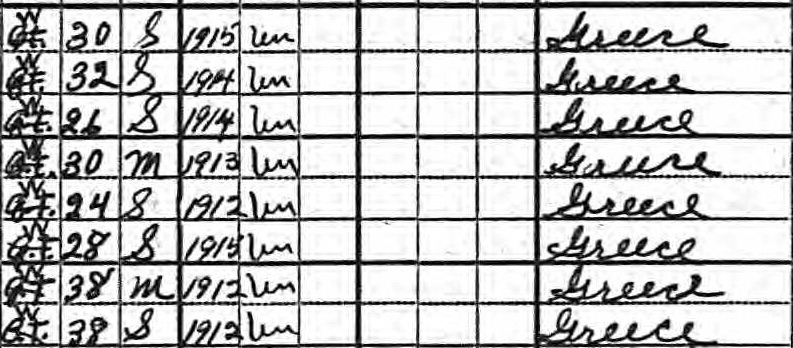
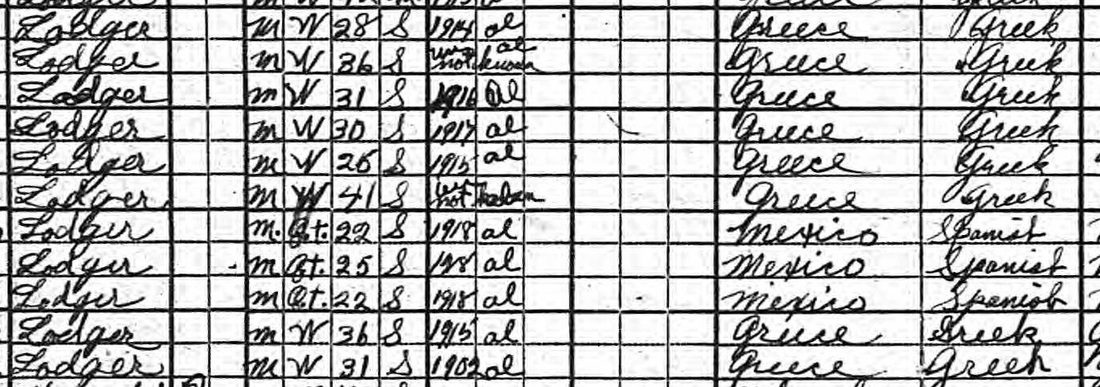
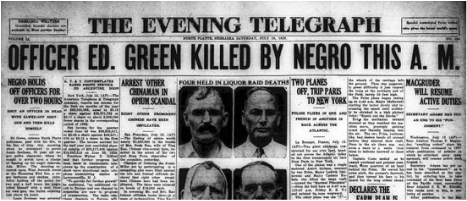
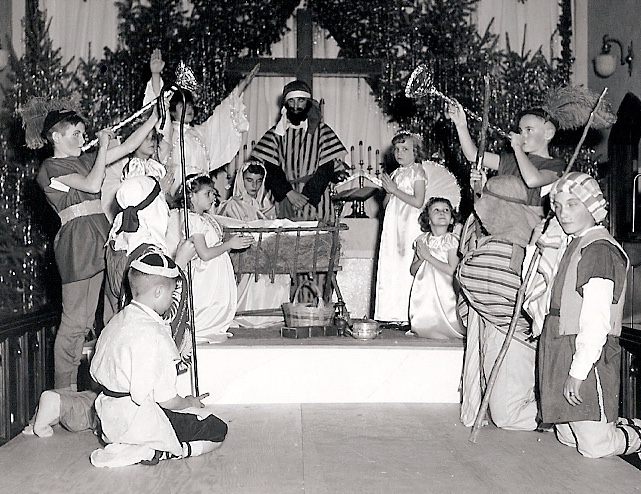
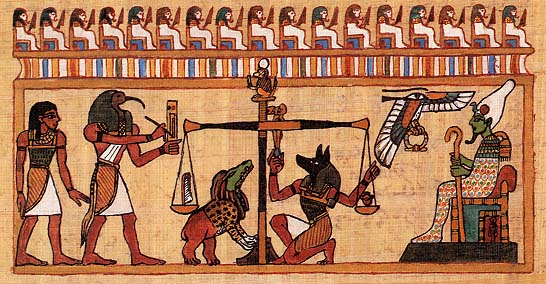

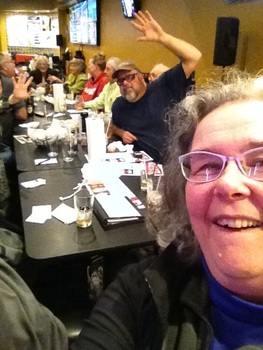
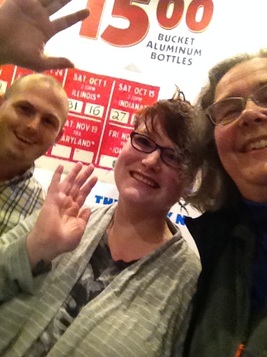
 RSS Feed
RSS Feed